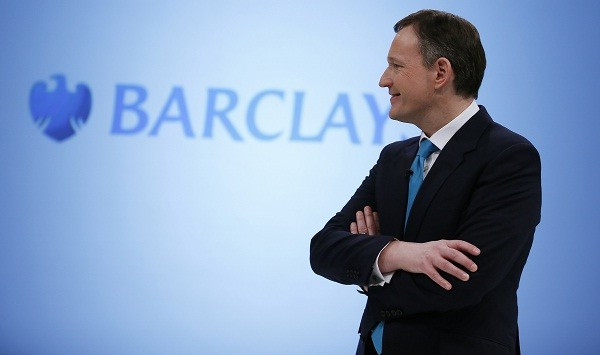Barclays shake-up signals refocus on investment banking

Two things stand out from a statement made this morning (8 July) by Barclays' new chairman John McFarlane, who will run the bank until a replacement is found for former CEO Antony Jenkins, who is unexpectedly stepping down.
McFarlane mentioned the bank's "first class investment banking business" and the fact that "we are leaving value on the table".
Investment banking became a dirty word following the financial collapse of 2008-2009. The big UK banks have all tried to distance themselves from it.
This is why Jenkins was appointed in 2012. He took over from former Barclays kingpin Bob Diamond, a larger than life investment banker who rose through the ranks like an irrepressibly inflated security, and who came to embody the greed and profligacy of the banking system at that time.
Jenkins, who stated: "The universal banking model is dead", was brought in with a mandate to clean up the bank in the wake of the Libor scandal and shrink the investment bank.
In 2006, he began running company's Barclaycard division, and in 2009 was promoted to chief executive of the retail and business banking group and asked to join the executive committee. He was appointed as the group chief executive in 2012 and declined his bonus for 2013 following the Libor scandal.
Deputy chairman Sir Mike Rake is reported to have rallied the board in favour of speedier changes at the bank. He apparently also wants to preserve the global strength of bank's investment banking arm, which has been the worst performing division and a drag on group revenue.
The investment bank's return on equity, seen as measure of profitability, fell to just 2.9% last year.
In the first quarter of this year the bank reported a statutory pretax profit of £1.3bn, down 26% from a year ago. This was not so bad after deductions and taking account of the provisions made for things like libor fines.
It was back when the Barclays reported fourth quarter results for 2013 that Jenkin's halo really fell to the floor and he faced serious criticism. Full-year pre-tax profit fell by a third in 2013 over 2012, to £5.2bn. Profits before tax at the investment bank fell 37% to £2.5bn.
Jenkins' departure follows recent changes in the leadership at other large European banks including Deutsche Bank, Credit Suisse and Standard Chartered, as the industry tries to weather a sea of changes in regulation, technology and public opinion.
Jenkins' focus on retail banking with a view to delivering customer satisfaction by way of appeasing the British public is commendable (and the ring-fencing of UK banks' investment and retail divisions is becoming legislation), but it doesn't help with the bottom line.
The majority of Barclays' profits traditionally came from its investment banking division. In fact the universal banking model that Jenkins eschewed would have helped fund the retail operation that he championed.
We have a culture that expects free banking, but in fact it isn't free – it was paid for by the other side of the bank, the "bad" side.
Jenkins was also a vocal fan of technology. Barclays is big in this space, rolling out everything from its caring Digital Eagles project, to the automation of payments systems (both retail and back-end), through to the more esoteric such as accelerator labs and cryptocurrency labs found everywhere from Notting Hill to Paolo Alto.
This also costs lots of money. So while Jenkins' good work since the dark days of Bob Diamond is being publicly saluted by the bank, the harsh realities of its balance sheet have rung in the changes.
Brenda Kelly, head analyst at London Capital Group, said: "News that the chief executive Antony Jenkins has been ousted has sent shares in Barclays higher this morning, while other UK banks remain firmly in the red.
"In the job a mere three years, Jenkins has seen Barclays' share price outperform that out of the FTSE350 bank index. Plans to accelerate changes in the business and improve revenue and capital performance have evidently pushed the board into this decision. The potential for further job cuts remains."
© Copyright IBTimes 2025. All rights reserved.






















